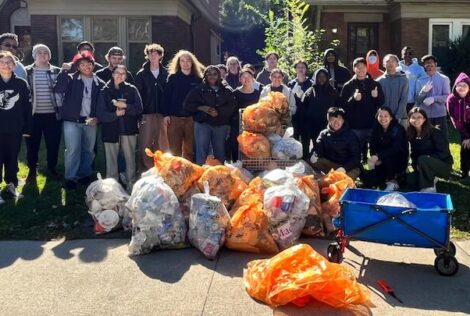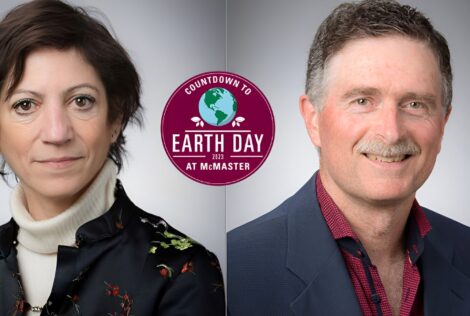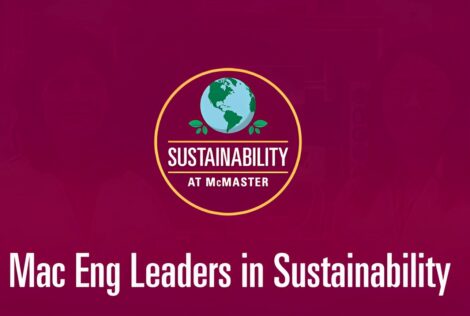
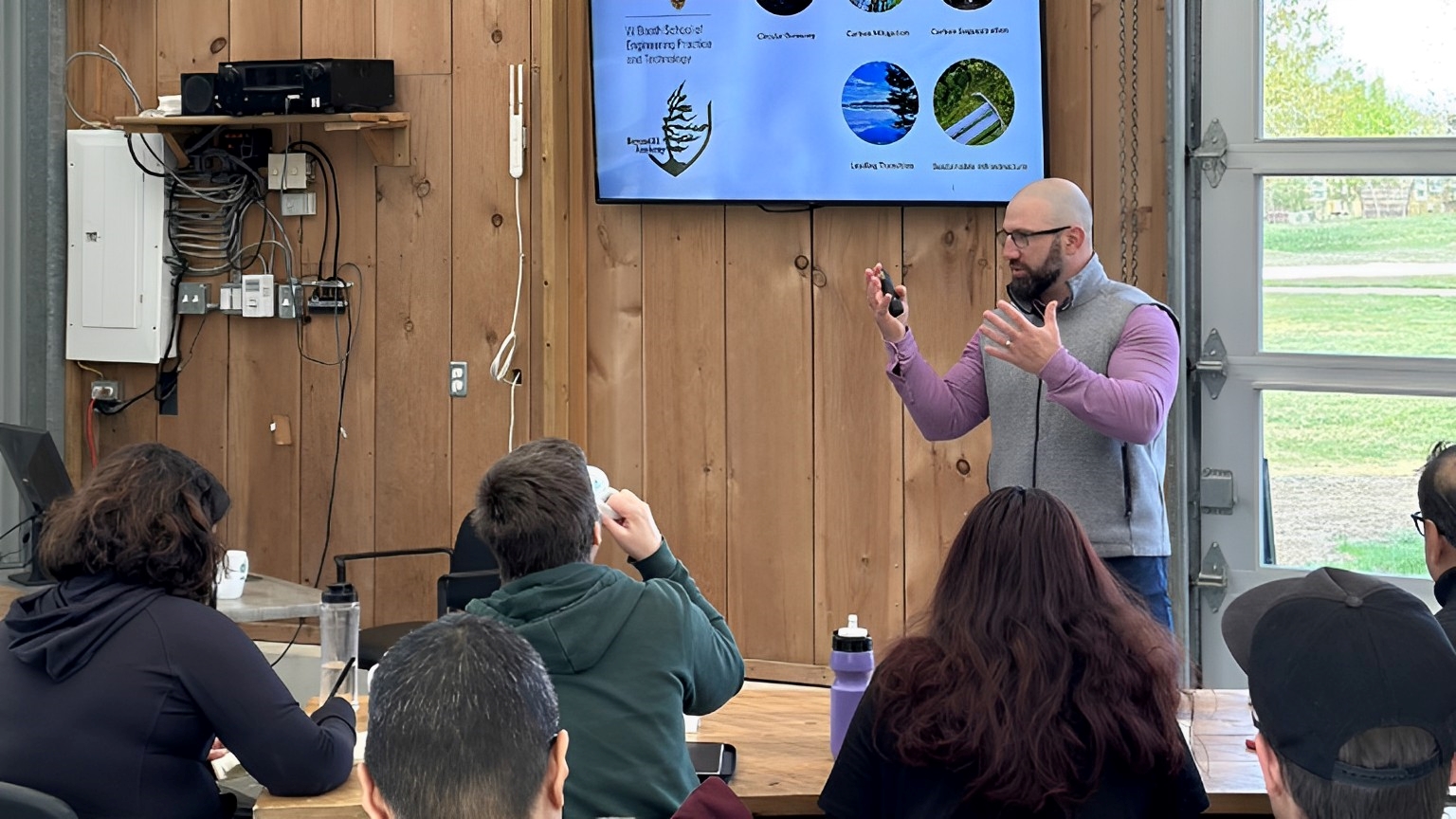
We sat down with Greg Zilberbrant, an Adjunct Assistant Professor at the Booth School, to discuss his career in sustainability spanning both industrial and academic spheres. Additionally, we delved into how his organization, Beyond21 Academy, in partnership with the Booth School, is creating a meaningful impact through experiential learning. Explore his unique journey and insights, as well as McMaster’s significant role in it all.
Could you provide some insights into your background and the path that led you to your current role?
Well, it’s been an unconventional journey – as many are. It started at McMaster in engineering nearly 25 years ago. After completing my undergrad, I began a career as an environmental engineer working in the steel industry, moving into the cement industry, and then sustainability consulting. Throughout that time, I’ve had the opportunity to work on many sustainability related projects from energy, carbon mitigation, pollution control, waste management, to circular economy.
About 12 years later, I made my way back to McMaster to complete my PhD and teach courses in environmental engineering and sustainability. I’m grateful for that experience and I think my students appreciate the industry examples that I incorporate into my classes – and usually welcome site visits to projects I’ve been involved with.
What sparked your interest in sustainability and environmental issues? Were there any experiences or influences that shaped your career path?
I’ve had a passion for sustainability since I was a kid – I was always concerned with waste, water, and energy issues (even before I could really explain them in any meaningful way).
The approach I took to my career was really solidified when I was coming out of my undergraduate education and looking to enter the workforce. I was at a job interview (that wasn’t going particularly well) with a smaller engineering firm. The conversation had made its way to my interest in addressing environmental challenges that I was clearly passionate about. The interviewer asked me if I was planning to be an engineer or a protester.
As a young graduate looking to contribute to my new profession, the opinion that any positive environmental action, even in an engineering context, must be something that is perceived as contrary, really caught me off-guard. I realized that beyond technical skills, being an effective educator and communicator would be necessary if I was going to have a meaningful impact in the environmental engineering space – which has been true in every stage of my career.
Seizing the opportunity to communicate the values of sustainability strategies to senior leaders of organizations, community stakeholders, and front-line staff has helped me deliver on some very meaningful environmental projects and [I hope] made me a better educator!
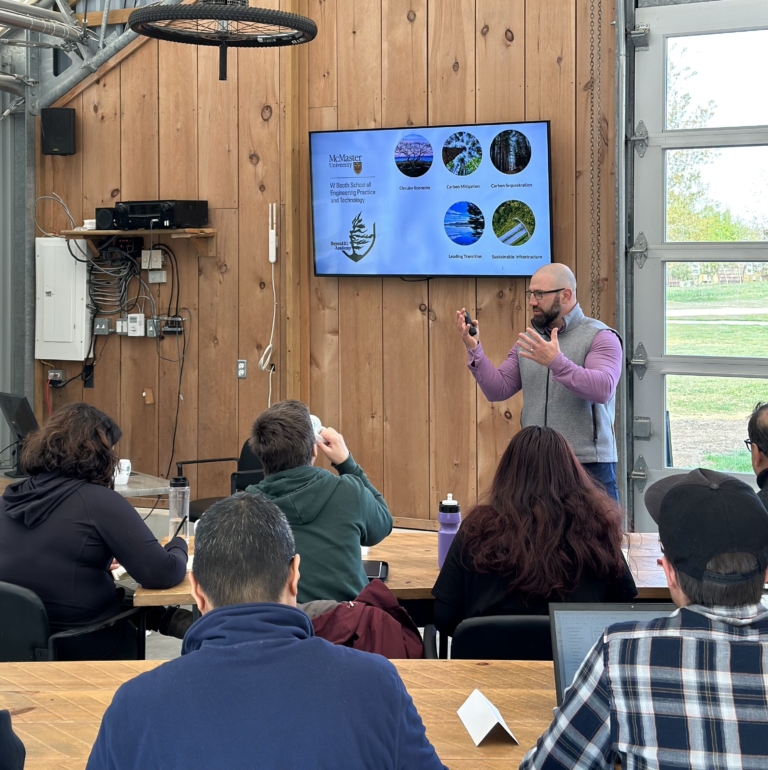
Tell us about Beyond21 Academy and how you support sustainability efforts and environmental education. Are there any upcoming projects or initiatives that Beyond21 Academy is working on?
Beyond21 Academy is an idea that has been in the making for many years and I’m excited that we were able to get it off the ground last year. The focus on Beyond21 Academy is experiential, impact-based education. This is best exemplified in our Carbon Sequestration & Nature-Based Solution course in partnership with the Booth School.
Students are immersed in nature at Long Point Eco-Adventures (LPEA) where they learn about carbon markets, measuring carbon uptake in a forest, and how to develop a nature-based carbon credit. All these learnings tie into their understanding of carbon sequestration and how to support strategies for organizations driving toward net-zero. It doesn’t stop there; the students also contribute to the activities of the sustainable forestry plan for LPEA including planting a section of forest.
This is what we mean by experiential, impact-based education. The opportunity to receive foundational knowledge from experts in academia and industry, experiential education through their immersion in the environment, and the opportunity to leave an immediate as well as a long-term impact…all in a period of just three days.
We’re excited to be going back to Long Point Eco-Adventures in mid-October for the next offering of this course. We had quite a few university students attend in May, so we decided to run the next one during reading week (October 11-13).
Additionally, we’re working on more educational opportunities like this one, focused on circular economy and climate change. This training compliments the live, virtual courses in these topics with students and professionals learning together, networking, and having a positive environmental impact through their education and training. We also hope to see more individuals and organizations choosing impact-based education for their professional development – and the opportunity to train staff and leave a positive impact with each session.
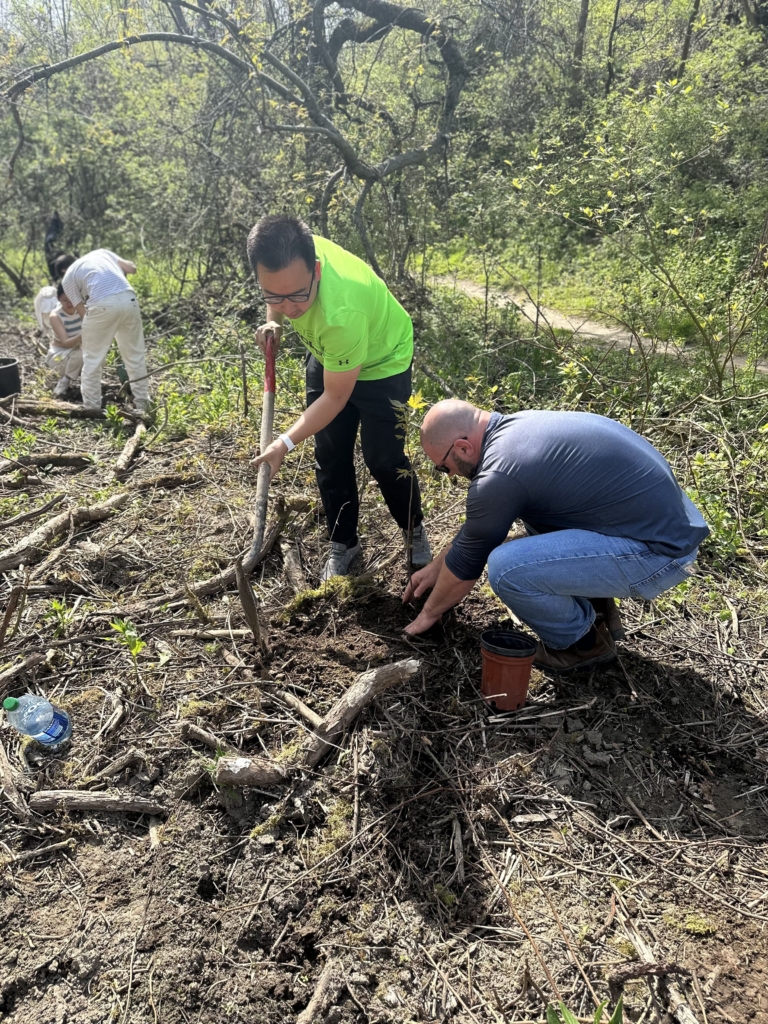
How do you envision the future of sustainability education? What changes or developments would you like to see in this field?
In envisioning the future of sustainability education, I see a transformational shift in the way it is integrated into educational systems. I believe that sustainability education should be embedded at all levels, from primary schools to higher education institutions. It should not be confined to specialized courses but should be integrated across disciplines; allowing students to develop a comprehensive understanding of sustainability in various fields.
I envision a future where sustainability education goes beyond theory and embraces practical, real-world applications. This includes providing students with opportunities for experiential learning, engaging with sustainability projects, and collaborating with industry professionals. By immersing students in real-life sustainability challenges, we empower them to become active contributors and problem solvers.
Moreover, I anticipate the integration of technology and innovative teaching methodologies in sustainability education which will support access to education without geographic boundaries. However, the physical connection to nature and people is critically important and I hope that educational institutions will see that environmental education without an immersive experience is ultimately an incomplete one.
I hope that the work we’re doing at Beyond21 Academy with the Booth School will act as a showcase for educational institutions and private organizations. The opportunity to create a positive impact while educating our current and future workforce is a win for everyone.
Carbon Sequestration & Nature-Based Solutions professional Certificate Course
Beyond21 Academy work in partnership with the Booth School to deliver relevant and practical sustainability training to students and working professionals.
If you are interested in nature-based solutions through forestry and land use improvement, join Beyond21 Academy’s, in person Carbon Sequestration & Nature-Based Solutions professional Certificate Course. Scheduled for October 11-13, participants in this course will plant a distinct portion of the Long Point Eco- Adventures Forest guided by a sustainable forestry plan designed to meet carbon credit requisites.
Upon successful completion, participants will be awarded a certificate of completion from McMaster University’s, W Booth School of Engineering Practice & Technology.
For more information and to register, visit the official website at: https://www.beyond21.world/carbon-sequestration-and-nbs

